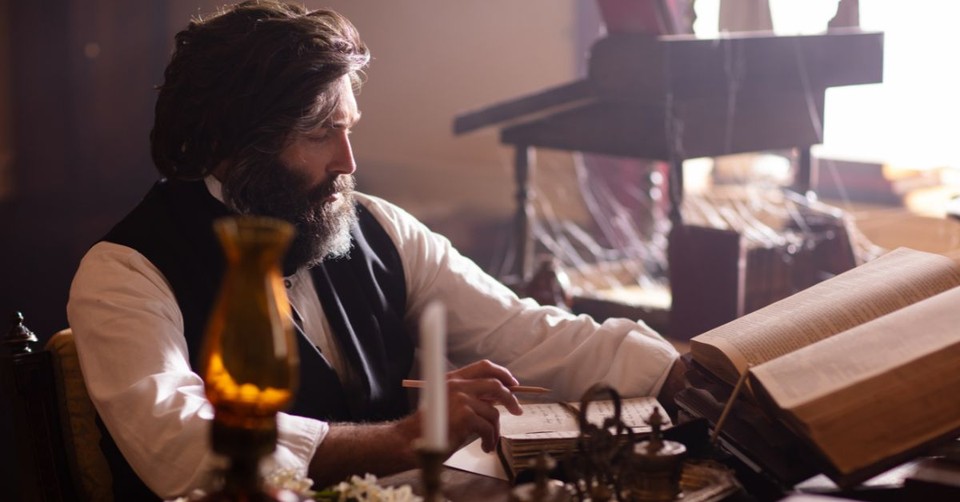What Does 'I Heard the Bells on Christmas Day' Teach Us about Finding Peace after Grief

With Christmas several weeks away, I want to take this time to reflect on how the poem, “I Heard the Bells on Christmas Day,” written by famed American poet Henry Wadsworth Longfellow, is a solemn reminder of the hope we have in God regardless of the fallen world we live in and hardships we face in this life.
In looking at the context of the poem, one can see that Longfellow himself had his share of hardships in his life. For one, you have his wife, Fanny Elizabeth Appleton, who tragically died after her dress caught on fire. Despite his attempts to extinguish the flames, Fanny was severely burned and died the following day (July 10, 1861).
Longfellow himself was also burned, to the point where he was unable to attend his late wife’s funeral! I cannot imagine such grief as he wasn’t able to attend the funeral of his beloved wife and mother of his children, but he was so grieved by the incident that he feared that it could send him to an asylum.
Fanny’s death leaves Longfellow behind with six children, in which their oldest, 18-year-old Charles Appleton Longfellow, enlisted in the Union Army to fight in the Civil War. Although Charlie enlisted unbeknownst to his family’s knowledge, his father later granted him permission upon the request of Captain W. H. McCartney’s, commander of Battery A.
Tragedy, however, would ensue in the poet’s life once more on November 27, 1863, when Charles had been shot through the left shoulder and was nearly paralyzed during a battle of the Mine Run Campaign, Charley. The cases of the loss of his wife and the injury of his son clearly left Longfellow in disarray, as would any of us upon hearing bad news concerning our loved ones. No one is ever prepared to feel the loss of friends or family members, whether it is by death or separation. You can’t help but feel deep grief, the type of grief that keeps you up at night, or like Longfellow, you fear that it would drive you to the very brink of insanity.
Yet it was in that same suffering that Longfellow would pen a poem on Christmas day (December 15, 1963) after hearing Christmas bells ringing outside in Cambridge and the singing of “peace on earth, good-will to men” (Luke 2:14, KJV). That poem would later be written into a song that is still sung today, while his story has also been made into a film by Sight and Sound Films. Why? Because of the message it entails. The following words are written by a man who was reminded of the hope we have in Christ amidst suffering.
I heard the bells on Christmas Day
Their old, familiar carols play,
and wild and sweet
The words repeat
Of peace on earth, good-will to men!
And thought how, as the day had come,
The belfries of all Christendom
Had rolled along
The unbroken song
Of peace on earth, good-will to men!
Till ringing, singing on its way,
The world revolved from night to day,
A voice, a chime,
A chant sublime
Of peace on earth, good-will to men!
Then, from each black, accursed mouth
The cannon thundered in the South,
And with the sound
The carols drowned
Of peace on earth, good-will to men!
It was as if an earthquake rent
The hearth-stones of a continent,
And made forlorn
The households born
Of peace on earth, good-will to men!
And in despair, I bowed my head;
“There is no peace on earth,” I said;
“For hate is strong,
And mocks the song
Of peace on earth, good-will to men!”
Then pealed the bells more loud and deep:
“God is not dead, nor doth He sleep;
The Wrong shall fail, The Right prevail,
With peace on earth, good-will to men.”
The line “peace on earth, good-will to men” has its basis in Scripture, when the angels were singing at the news that Jesus Christ was born. Friends, let us take heart this Christmas season, no matter what the state of the world is or what challenges we are facing. Like Longfellow, it is easy to become discouraged by the state of affairs in his life and say, “There’s no peace on earth.” But friends, we know that peace exists, for it is in Christ, in whom we have peace with God (Romans 5:1). Furthermore, we have the peace of God that surpasses all human understanding and guards our hearts and minds in Christ (Phil. 4:7).
Another thing worth taking note of in the poem is the line, “God is not dead, nor doth He sleep.” It is typically in the rough seasons of life, such as dealing with loss, that one questions if God is even present at all. “Does He care?” “Why does He feel so distant?” and, of course, “If God is good, then why is there suffering in this world?” We have all asked these questions, myself included. Friends, no matter what we are dealing with or feeling, know that God is still there with us! In the midst of pain, the Lord still reigns, and righteousness will ultimately prevail.
WATCH: I Heard the Bells | Official Trailer | Out Now on Digital and DVD
Photo Credit: ©Great American Media 2024

Originally published December 06, 2024.







